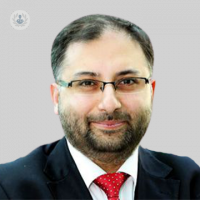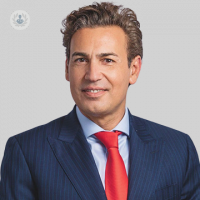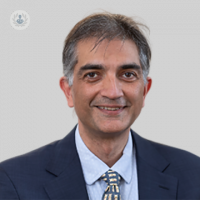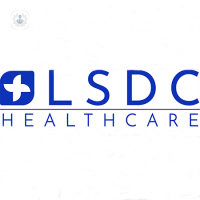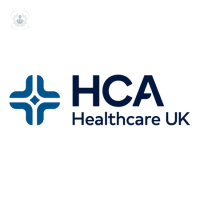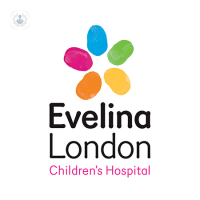What is an electrocardiogram (ECG)?
An electrocardiogram (ECG) is a diagnostic test used to measure the rhythm, rate and electrical activity of the heart. The ECG is one of the most important and commonly used tests to investigate certain heart diseases. There are three main types of ECG:
- Resting ECG – done when the patient is at rest, lying on a table.
- Stress ECG – done whilst the patient is using a treadmill or an exercise bike.
- Ambulatory ECG – a small portable device with wires connected to the chest is worn whilst the patient is outside the hospital for a period from 24 hours to 7 days.

What does an electrocardiogram (ECG) consist of?
An ECG is performed with the patient awake, lying on an examination table. The specialist applies small sticky patches called electrodes to the chest, arms and legs, which are connected by wires to the ECG machine, which converts the electrical signals into a graph that is printed on paper.
Why is an electrocardiogram (ECG) done?
An ECG is performed to measure the activity of the heart and to detect irregularities such as arrhythmias, damage to the heart, the size of the heart chambers or the effect of medications or devices such as pacemakers.
Diagnostic spectrum of an ECG include:
- Atrial fibrillation
- Supraventricular tachycardia (SVT)
- Heart attacks
- Coronary heart disease
- Cardiomyopathy
Preparation for an electrocardiogram (ECG)
The patient who is going to have an ECG should inform the specialist about any medications they are taking. Other than that, no special preparation is required before having an ECG.
What does an electrocardiogram (ECG) feel like?
An ECG is completely painless and the patient will not feel discomfort. An ECG lasts just a few minutes and the patient can usually return home straight afterwards.
Meaning of abnormal results from an electrocardiogram (ECG)
Abnormal results from an ECG will show irregular waves or spikes on the graph, which can be due to multiple coronary issues, such as arrhythmias, damage to the myocardium, enlargement of the heart, heart attack, myocarditis, or congenital heart disease.
11-13-2012 11-07-2023Electrocardiogram
What is an electrocardiogram (ECG)?
An electrocardiogram (ECG) is a diagnostic test used to measure the rhythm, rate and electrical activity of the heart. The ECG is one of the most important and commonly used tests to investigate certain heart diseases. There are three main types of ECG:
- Resting ECG – done when the patient is at rest, lying on a table.
- Stress ECG – done whilst the patient is using a treadmill or an exercise bike.
- Ambulatory ECG – a small portable device with wires connected to the chest is worn whilst the patient is outside the hospital for a period from 24 hours to 7 days.

What does an electrocardiogram (ECG) consist of?
An ECG is performed with the patient awake, lying on an examination table. The specialist applies small sticky patches called electrodes to the chest, arms and legs, which are connected by wires to the ECG machine, which converts the electrical signals into a graph that is printed on paper.
Why is an electrocardiogram (ECG) done?
An ECG is performed to measure the activity of the heart and to detect irregularities such as arrhythmias, damage to the heart, the size of the heart chambers or the effect of medications or devices such as pacemakers.
Diagnostic spectrum of an ECG include:
- Atrial fibrillation
- Supraventricular tachycardia (SVT)
- Heart attacks
- Coronary heart disease
- Cardiomyopathy
Preparation for an electrocardiogram (ECG)
The patient who is going to have an ECG should inform the specialist about any medications they are taking. Other than that, no special preparation is required before having an ECG.
What does an electrocardiogram (ECG) feel like?
An ECG is completely painless and the patient will not feel discomfort. An ECG lasts just a few minutes and the patient can usually return home straight afterwards.
Meaning of abnormal results from an electrocardiogram (ECG)
Abnormal results from an ECG will show irregular waves or spikes on the graph, which can be due to multiple coronary issues, such as arrhythmias, damage to the myocardium, enlargement of the heart, heart attack, myocarditis, or congenital heart disease.
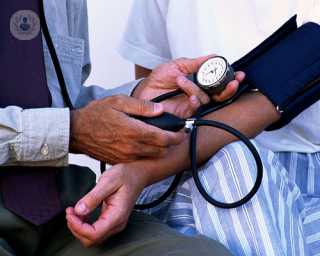

5 ways to diagnose high blood pressure
By Dr Ahmed Elghamaz
2024-12-30
Hypertension is very common in our society. By the age of 60 half of our population has high blood pressure. It’s important to keep a check on your current blood pressure level because it can change with time. Leading cardiologist Dr Ahmed Elghamaz explains... See more
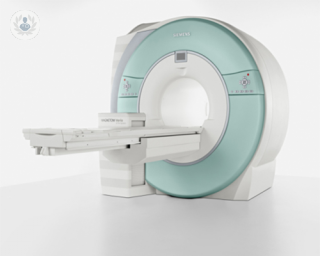

What are the different kinds of non-invasive cardiac imaging tests?
By Dr Yousef Daryani
2024-12-30
You may have been told by your doctor that you need cardiac imaging to check for heart disease, or you may have symptoms of heart disease and want to be checked by a specialist. With the help of leading consultant cardiologist, Dr Yousef Daryani talks through the different procedures, and what to expect. See more
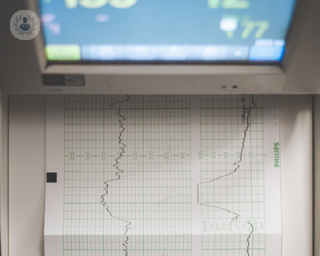

Atrial fibrillation: What are the signs and symptoms?
By Dr Shui Hao Chin
2024-12-28
Revered consultant cardiologist and electrophysiologist Dr Shui Hao Chin reveals the key signs and symptoms of atrial fibrillation to look out for in this informative guide for patients. See more
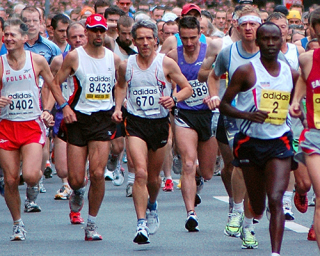

Should marathon runners pay a visit to a cardiologist?
By Dr Mark Mason
2024-12-28
If exercise is good for the heart, why do you hear about athletes in their prime, such as footballer Fabrice Muamba, collapsing while competing in their sport? The answer is usually that the athlete has an undetected cardiovascular condition. So, is it worth visiting a cardiologist before running a marathon? Dr Mark Mason is here to offer his expert insight. See more
Experts in Electrocardiogram
-
Dr Fakhar Khan
CardiologyExpert in:
- Atrial Fibrillation
- Electrophysiology study
- Dilated cardiomyopathy
- Electrocardiogram
- Pacemaker
- Arrhythmia
-
Dr Francesco Lo Monaco
CardiologyExpert in:
- Echocardiogram
- Electrocardiogram
- Heart check up
- Hypertension (high blood pressure)
- Palpitations
- Stress test
-
Dr Punit Ramrakha
CardiologyExpert in:
- Atrial Fibrillation
- Electrocardiogram
- Arrhythmia
- Echocardiogram
- Ambulatory blood pressure monitoring
- Chest pain
-
Dr Jakub Lagan
CardiologyExpert in:
- Stress test
- Cardiac MRI
- Echocardiogram
- Transoesophageal echocardiogram
- Electrocardiogram
- Coronary CT
-
Dr Matthias Schmitt
CardiologyExpert in:
- Coronary angiography
- Cardiac MRI
- Electrocardiogram
- MRI
- Non-Invasive Coronary
- Valvular heart disease
- See all

LSDC Healthcare
LSDC Healthcare
23 Widegate St, London E1 7HP, United Kingdom
No existe teléfono en el centro.
By using the telephone number provided by TOP DOCTORS, you automatically agree to let us use your phone number for statistical and commercial purposes. For further information, read our Privacy Policy
Top Doctors

78 Harley Street
78 Harley Street
78 Harley St, London, W1G 7HJ
No existe teléfono en el centro.
By using the telephone number provided by TOP DOCTORS, you automatically agree to let us use your phone number for statistical and commercial purposes. For further information, read our Privacy Policy
Top Doctors

Evelina London Children's Hospital Private Healthcare
Evelina London Children's Hospital Private Healthcare
Floor 1 St Thomas' Hospital, Westminster Bridge Road, London. SE1 7EH
No existe teléfono en el centro.
By using the telephone number provided by TOP DOCTORS, you automatically agree to let us use your phone number for statistical and commercial purposes. For further information, read our Privacy Policy
Top Doctors
-
LSDC Healthcare
23 Widegate St, London E1 7HP, United Kingdom, Central LondonExpert in:
- Abdominal ultrasound
- Achalasia
- Digestive
- Inflammatory bowel disease
- Gastroenterology
- Acid reflux
-
78 Harley Street
78 Harley St, London, W1G 7HJ, Central LondonExpert in:
- Cancer
- Head and neck cancer
- Cardiology
- Intensive care
- Diagnostic Imaging
- Women’s health
-
Evelina London Children's Hospital Private Healthcare
Floor 1 St Thomas' Hospital, Westminster Bridge Road, London. SE1 7EH, SE1 South Bank LondonExpert in:
- Paediatric Dermatology
- Child development
- Child Nutrition
- Paediatrics
- Preventive paediatrics
- Child health surveillance
- Most viewed diseases, medical tests, and treatments
- Narcolepsy
- Snoring
- Polysomnography (sleep study)
- Alzheimer's disease
- Cluster headaches
- Tension headache
- Chronic headache
- Electrophysiology study
- Migraine
- Autoimmune diseases

